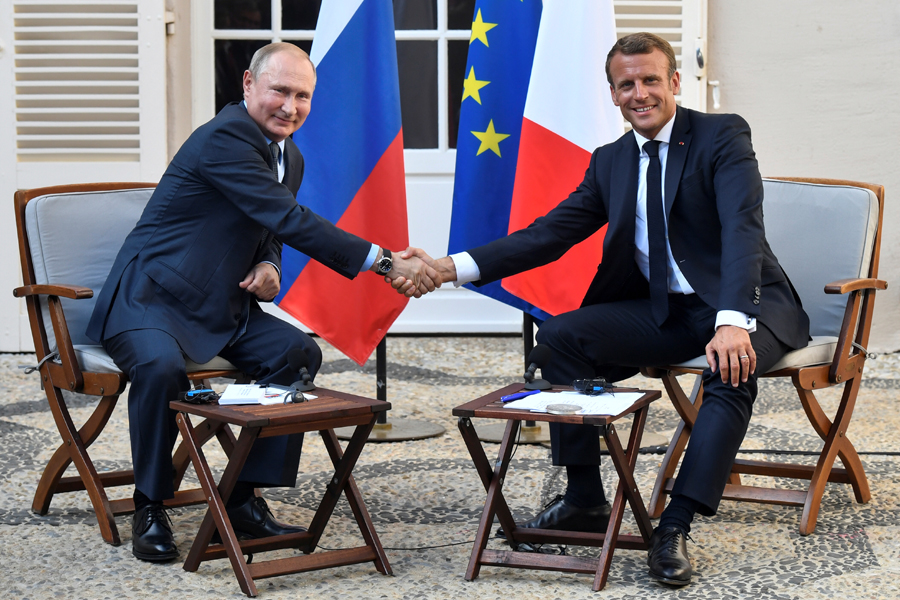G7 summit reflects paradigm shift in global governance agenda
By Pan Yixuan | China Daily | Updated: 2019-08-24 09:07

Editor's note: The G7 summit to be held in the French seaside city of Biarritz Aug 24-26 will mainly focus on "fighting inequality" without perhaps going into the nitty-gritty of how to do so. How does the agenda reflect on the seven most industrialized countries in the world? Three experts share their views on the issue with China Daily's Pan Yixuan. Excerpts follow:
Macron wants to step into Merkel's shoes
Apart from boosting economic development, globalization has caused wealth to flow to those who own production factors, leading to widening inequality across the world. The discontent over inequality and traditional institutions' inability to solve the problem has led to the rise of populist movements such as the "yellow vest" movement in France.
Many in Europe are angry with the widening income gap, and feel US internet giants such as Facebook, Google and Amazon derive huge benefits from the European market yet don't pay their share of taxes. No wonder France has decided to impose digital tax on the US tech giants.
Now that Angela Merkel is close to the end of her term as German chancellor and European leader, French President Emmanuel Macron would like to lead the European development agenda, albeit in coordination with other European leaders, against US hegemony. But Macron may find it difficult to unite the other six G7 member states to reach an agreement, not least because rifts have grown within the European Union, too.
Ding Chun, director of the Center for European Studies and Jean Monnet chair at Fudan University
France's agenda designed to avoid conflicts with US
Apart from inequality, France, as the host, has included five other items in the G7 agenda-gender issue and education; climate change and ecology; security; trade; and digital technology-and thus reduced many international problems to the social level.
From focusing on the economy, the G7 agenda has expanded to include diplomatic and security issues. But the US' self-centered stance has created a rift within the G7. In fact, last year's G7 summit concluded with the US leader refusing to sign an agreed communiqué. So France has put the agenda's focus on "softer issues" this year with the aim of avoiding conflicts and in the hope the US would cooperate at the summit. Whether the US will cooperate, however, is impossible to predict.
Cui Hongjian, director of the department for European studies at the China Institute of International Studies
West trying to coordinate actions against challenges
In the post-Cold War era, major countries have been focusing more on their domestic agendas. But Western countries should not only be aware of the internal challenges but also take action against the rising internal risks. For instance, aside from taking measures to combat terrorist threats from the outside, they also should confront internal (or non-traditional) security threats, such as White nationalism in the US.
This year's G7 summit agenda is France's response to the "yellow vest" protests against rising inequality and widening wealth gap. But given their differences, it will be hard for the G7 countries to find a practical solution to the problem in the short term.
Zhu Feng, dean of the Institute of International Relations of Nanjing University
























